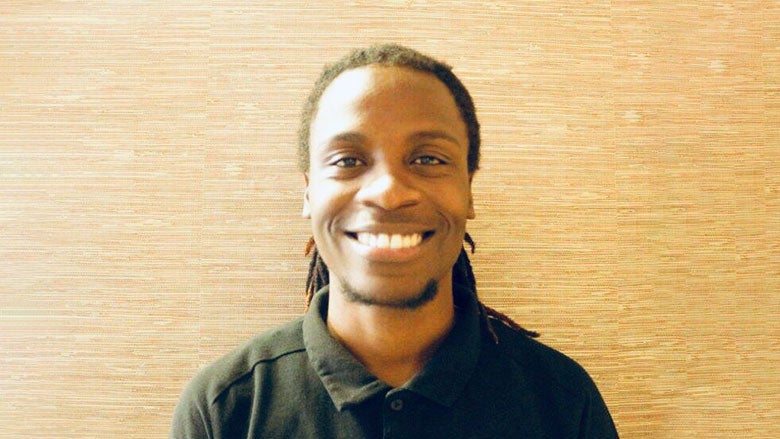 Ephraim Modise, a Botswanan national, is a winner of the World Bank Africa 2019 Blog4Dev regional competition
Ephraim Modise, a Botswanan national, is a winner of the World Bank Africa 2019 Blog4Dev regional competition
According to the United Nations, Africa's youth, citizens aged between 15 and 24 years old, currently stands at more than 200 million, making it the continent with the youngest population in the world. It is essential to equip this young population with the necessary skills that will allow them to be relevant in an economy that is rapidly becoming digital.
Despite having a lower penetration rate (percentage of population using internet) than developed countries in Europe and North America, statistics show that Africa has a rapidly growing rate of internet connectivity and usage. Increasing penetration rate is therefore an important measure to be taken in bridging the gap of the digital divide and consequently helping Africa's youth actively partake in the global digital economy.
The key is to make internet services easily available to Africa's youth. This will help equip us with the necessary skills that will put us on the same level of knowledge and expertise as our peers in developed countries. It will also allow us to actively and competitively partake in the digital economy. Without the availability of these services, it will be difficult for Africa's youth to be an active part of the digital economy.
In the meantime, it will be important to impart knowledge with the youth on the importance of information and communications technology (ICT) to build interest among young people. Without interest, even if infrastructure was to be availed, it would become white elephants which no one shows interest in using. Therefore, youth should be properly taught ICT skills, so that they can better appreciate its relevance in the modern era.
Apart from teaching digital literacy, what can also be done is to offer subsidized prices for internet subscribers to enable more, and broader access to internet services. As noted with the #DataMustFall movement, most young Africans cannot afford internet services because of the high prices. Without their participation because of lack of affordability of internet services, African countries will continue to lag behind the developed world in the digital economy.
Another step which can be taken to increase penetration rate is to invest more in building infrastructure to help in the implementation of internet service projects, in both urban and rural areas. Such infrastructure includes satellites, fiber-optic networks, connectivity infrastructure etc. The current situation in most developing countries in Africa is that ICT infrastructure is concentrated in urban areas, with a few to none being available in rural areas. This means that the only way youth in rural areas can access ICT services is to migrate to urban areas, a situation which puts them at a disadvantage compared to their peers in developed countries.
A young population coupled with increasing rates of internet usage and connectivity can prove to be an important advantage for Africa in her pursuit to be competitive in the digital economy. By taking the appropriate steps to increase penetration rate and hence bridge the digital divide, Africa can find herself being actively competitive in the digital economy in the coming few years.
Ephraim Modise, a Botswanan national, is a winner of the World Bank Africa 2019 Blog4Dev regional competition


Join the Conversation